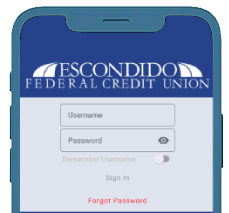EFCU History
Discovery the journey of Escondido Federal Credit Union
Become a MemberOur History
From humble beginnings to serving our community today, discover the journey of Escondido Federal Credit Union.
Today, Escondido Federal Credit Union continues to operate under the same Credit Union principals and guidelines set forth by the founding ten subscribers. EFCU continues to look out for members' interests and provide a level of service that is not generally available at other financial institutions. Whether it's providing a loan to help a member cover unexpected medical bills, giving financial counseling, or simply offering a better deal on a used car loan, Escondido Federal Credit Union makes a difference for its members.
EFCU Timeline
Founding of Escondido Federal Credit Union
December 1959
On December 18, 1959, ten founding subscribers signed and submitted an Organization Certificate to the Bureau of Federal Credit Unions requesting establishment of Escondido City Employees Federal Credit Union. The charter was granted on December 28, 1959.
Early Growth Period
1960s - 1985
Once located in the tiny basement of 100 Valley Boulevard, the Credit Union grew along with the City and as of 1985 had approximately 710 members and $1,611,809.14 in assets.
Move to City Hall
1988
Escondido City Employees Federal Credit Union moved into the newly constructed City Hall at 201 North Broadway.
Name Change to Escondido Federal Credit Union
March 9, 1994
Escondido City Employees Federal Credit Union officially became Escondido Federal Credit Union when the National Credit Union Administration (NCUA) granted approval of the credit union's request for a name change.
Membership Expansion
December 1999
Escondido Federal Credit Union was granted an amendment to the originally chartered membership to include employees, registered volunteers, and elected and appointed officials of the City of Escondido, Members of the Escondido Police Department Reserves, and Employees and registered volunteers of the California Center for the Arts.
Administrative Branch Opening
2000-2001
In order to accommodate the expansion of membership, renovations of 2261 E. Valley Parkway began in March 2000. Escondido Federal Credit Union opened the doors of the Administrative Branch in April 2001 which also featured a convenient drive-thru ATM kiosk.
EFCU Today
Present
Today, Escondido Federal Credit Union continues to operate under the same Credit Union principals and guidelines set forth by the founding ten subscribers, providing exceptional service and looking out for our members' interests.
Credit Union Cooperative Principles
The Credit Union National Association (CUNA) Cooperative Alliances Committee developed seven cooperative principles that reflect our commitment to serving members and their communities. These principles were inspired by the Rochdale Principles, which were named after the first successful co-op, founded in Rochdale England in the 1840s.
Credit unions are voluntary, cooperative organizations, offering services to people willing to accept the responsibilities and benefits of membership, without gender, social, racial, political or religious discrimination.
Many cooperatives, such as credit unions, operate as not-for-profit institutions with volunteer board of directors. In the case of credit unions, members are drawn from defined fields of membership.
Cooperatives are democratic organizations owned and controlled by their members, one member one vote, with equal opportunity for participation in setting policies and making decisions.
Members are the owners. As such they contribute to, and democratically control, the capital of the cooperative. This benefits membership in proportion to the transactions with the cooperative rather than on the capital invested.
For credit unions, which typically offer better rates, fees and service than for-profit financial institutions, members recognize benefits in proportion to the extent of their financial transactions and general usage.
Cooperatives are autonomous, self-help organizations controlled by their members. If the cooperative enters into agreements with other organizations or raises capital from external sources, it is done so based on terms that ensure democratic control by the member and maintains the cooperative autonomy.
Cooperatives provide education and training for members, elected representatives, managers and employees so they can contribute effectively to the development of the cooperative.
Credit unions place particular importance on educational opportunities for their volunteer directors, and financial education for their members and the public, especially the nation's youth. Credit unions also recognize the importance of ensuring the general public and policy makers are informed about the nature, structure and benefits of cooperatives.
Cooperatives serve their members most effectively and strengthen the cooperative movement by working together through local, state, regional, national, and international structures.
While focusing on member needs, cooperatives work for the sustainable development of communities, including people of modest means, through policies developed and accepted by the members.
These seven principles are founded in the philosophy of cooperation and its central values of equality, equity and mutual self-help. They express, around the world, the principles of human development and the brotherhood of man through people working together to achieve a better life for themselves and their community.


